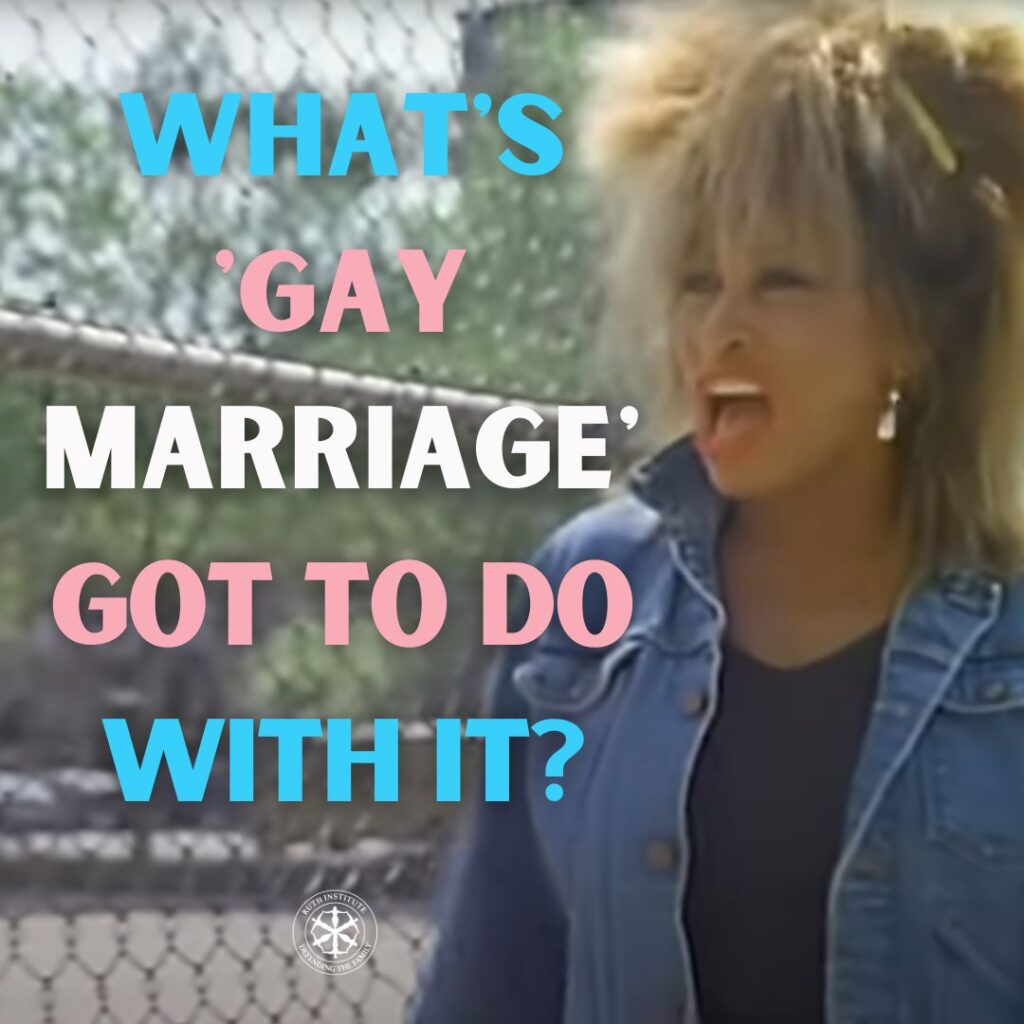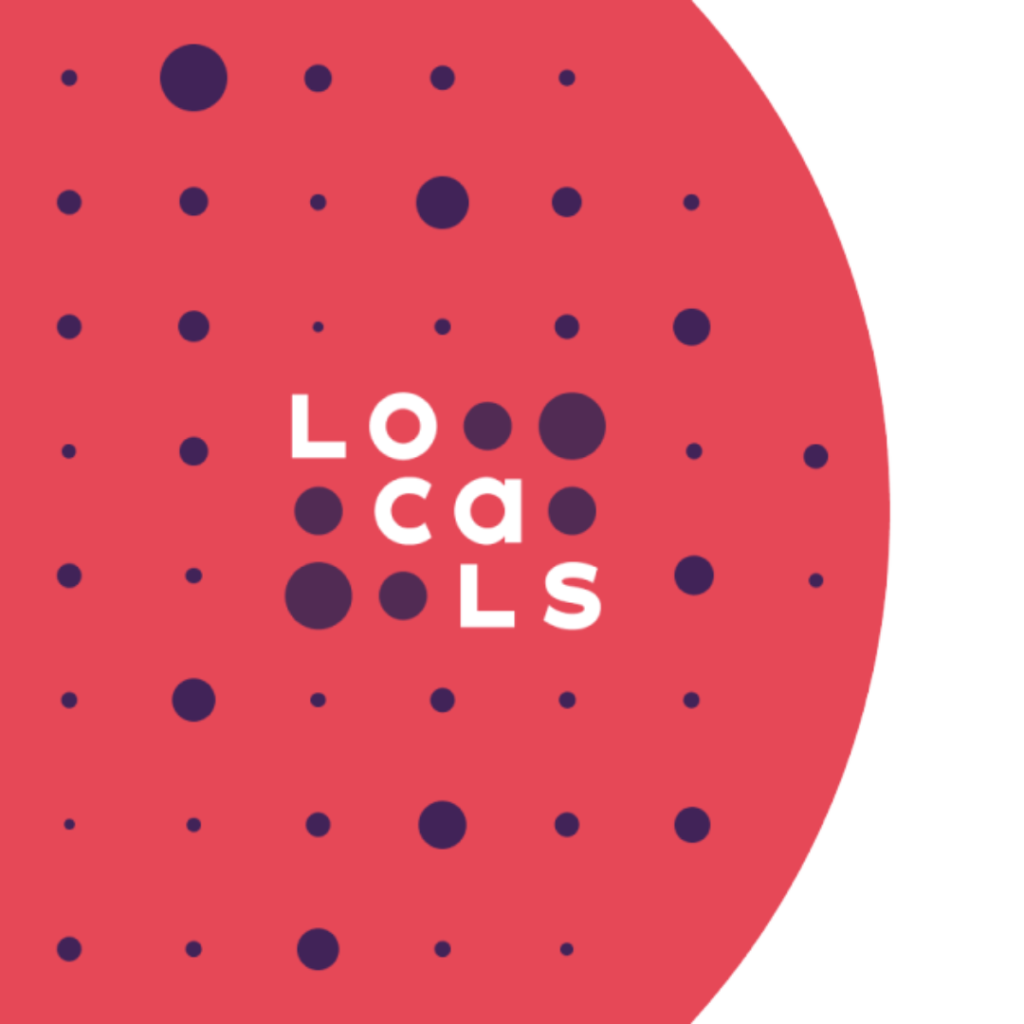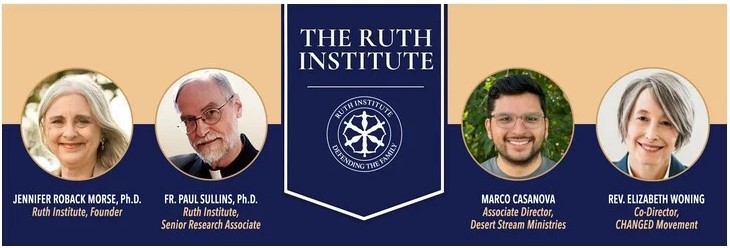
Jennifer Roback Morse August 7, 2023 at National Catholic Register
In a twisted sort of way, U.S. Rep. Julia Brownley, D-Calif. isn’t wrong in seeking to replace the words “husband” and “wife”” with the word “spouse” throughout the Federal code.
Brownley calls her bill “common sense.” She thinks her bill is “common sense” because “gay marriage” really did de-gender the institution of marriage. This proposal, which so far hasn’t become law, may seem trivial. But it illustrates the connection between the enactment of “gay marriage” with “transgenderism.” Many people of good will who were enthusiastic supporters of redefinition of marriage are now appalled by the transgender juggernaut. I’d like to show that the two issues are more closely related than might be apparent at first glance.
I was a campaign spokeswoman for California’s winning Proposition 8, which defined marriage as the union of a man and a woman, back in 2008. At that time, I predicted that redefining marriage would redefine parenthood. Both would require the revision, and in effect, the falsification of public documents.
I would show people the birth certificates from Canada, where they had already redefined marriage to permit same sex couples to marry. At that time, the birth certificates had a place for the mothers’ name. But where the father’s name should have been, the form had a check-off box, for “father” or “co-parent.”
At that time, I was deeply concerned about family breakdown. I had already written two books about the importance of stable marriages for children, their flourishing and development. Neither of those books said a word about “gay marriage” or homosexuality. I was concerned about the negative impact of fatherlessness on kids and on society.
I remember representing the Prop 8 campaign to The Los Angeles Times’ editorial board. The meeting was pro forma: They had already made up their minds. I showed them the Canadian birth certificates and said that motherhood might survive the redefinition of marriage. But gay marriage would reduce fatherhood to a check-off box. In my mind, this would be a devastating disadvantage to a policy that was at best likely to benefit a very small number of same-sex couples who would want to get married.
The editor at the LA Times tossed the birth certificate aside. She said, “Lots of kids don’t have fathers. So what?” Her callousness shocked me. It shocks me still.
As it happened, neither motherhood nor fatherhood has survived. An Australian friend sent me the birth certificate form he got for his newborn son. That form lists no mother and father at all. Only Parent 1 and Parent 2.
California replaced “husband” and “wife” with “spouse” in 2014. This was one of the results of the U.S. Supreme Court overturning Proposition 8 in 2013. Since then, California has permitted three legal parents to be listed on a child’s birth certificate. The state of Washington rewrote its Uniform Parentage Act to make public documents gender neutral. Numerous countries around the world have taken similar steps.
Connecting the dots between two simple facts will show us that we should not be surprised that the transgender movement picked up steam after the U.S. Supreme Court definitively redefined marriage in Obergefell v. Hodges in 2015.
The first fact is biological. Having children is the most gendered thing we do. We are mammals. Mammalian reproduction requires the participation of one male and one female.
The second fact is a social fact. Marriage is the institution that societies around the world and over time have used to identify the parents of a child and assign legal and social responsibility for the child’s care. Throughout history, motherhood has been easy to determine. The woman who gives birth to the child is the child’s mother. (Surrogacy has complicated this, but I digress.) Marriage identifies the father, through the legal presumption of paternity: A woman’s husband is presumed to be the father of any children born to a woman during the life of their marriage.
“Marriage equality” changed all that.
Between 2008 and 2015, the Ruth Institute was at the forefront of debating the marriage issue. I testified in state legislatures and debated on numerous law school campuses. I repeatedly pointed out that redefining marriage would change the relationship between the State and nature.
Redefining marriage requires a redefinition of parenthood. Before “marriage equality,” parenthood was understood to be a natural reality that the State simply records. Even adoption presupposes a natural definition of parenthood: The biological parents must either surrender their parental rights, or have their rights removed through an elaborate legal process. Today, the trend in adoption law is to allow the child to have some opportunity to know the identity of his or her biological parents.
After “marriage equality,” the state creates and defines parenthood. Canada, for instance, replaced the terms “natural parent” with “legal parent” throughout its family code. If certain legal criteria are met, a woman in a lesbian relationship can claim parental rights over her partner’s child, against the mother’s express wishes. The state creates and enforces the contracts that allow for surrogacy, egg donation and sperm donation. These are not insignificant matters. But I can testify: In all the years of debating on the subject, pretty much no one wanted to think about these issues.
The transgender movement seeks to change society’s understanding of male and female, to make these concepts subjective matters of personal choice, rather than objective matters of observable scientific fact. Their ultimate goal is the complete removal of male and female as legally and socially recognized concepts. Removing the dual-gender requirement from marriage pushed this ball down the field. I think this is undeniable.
Many good and thoughtful people who supported gay marriage oppose transgenderism. These people thought gay marriage was a “common sense” measure that would improve the lives of some of their neighbors. They had no idea what was right around the corner. The transgender machine was waiting to continue bulldozing society’s understanding of male and female as primal categories that we cannot entirely remake. We ignore basic biological realities at our peril.
If you are one of the people who supported gay marriage but who are horrified by transgenderism, I hope you will reconsider your position. There was more at stake than you may have realized at the time.
About the Ruth Institute
The Ruth Institute is a global non-profit organization, leading an international interfaith coalition to defend the family and build a civilization of love.
Jennifer Roback Morse has a Ph.D. in economics and has taught at Yale and George Mason University. She is the author of The Sexual State and Love and Economics – It Takes a Family to Raise a Village.
To get more information or schedule an interview with Dr. Morse, contact media@ruthinstitute.org.




